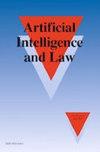人工智能、伦理和代际责任
IF 3.1
2区 社会学
Q2 COMPUTER SCIENCE, ARTIFICIAL INTELLIGENCE
引用次数: 9
摘要
人类塑造了人工智能算法的行为。一种机制是通过被动观察人类行为和我们不断生成的数据来训练这些系统。在一系列独裁者游戏的实验室实验中,我们让参与者的选择训练一个算法。因此,它们为智能系统的未来决策创造了外部性,影响未来的参与者。我们测试关于训练人工智能的信息如何影响人类行为的亲社会和自私。我们发现,让个人意识到他们的训练对后代福祉的影响会改变行为,但前提是个人承担了未来算法选择伤害自己的风险。只有在这种情况下,人工智能训练的外部性才会在当前显著提高平等主义决策的比例。本文章由计算机程序翻译,如有差异,请以英文原文为准。
Artificial Intelligence, Ethics, and Intergenerational Responsibility
Humans shape the behavior of artificially intelligent algorithms. One mechanism is the training these systems receive through the passive observation of human behavior and the data we constantly generate. In a laboratory experiment with a sequence of dictator games, we let participants' choices train an algorithm. Thereby, they create an externality on future decision making of an intelligent system that affects future participants. We test how information on training artificial intelligence affects the prosociality and selfishness of human behavior. We find that making individuals aware of the consequences of their training on the well-being of future generations changes behavior, but only when individuals bear the risk of being harmed themselves by future algorithmic choices. Only in that case, the externality of artificially intelligence training induces a significantly higher share of egalitarian decisions in the present.
求助全文
通过发布文献求助,成功后即可免费获取论文全文。
去求助
来源期刊

Artificial Intelligence and Law
Multiple-
CiteScore
9.50
自引率
26.80%
发文量
33
期刊介绍:
Artificial Intelligence and Law is an international forum for the dissemination of original interdisciplinary research in the following areas: Theoretical or empirical studies in artificial intelligence (AI), cognitive psychology, jurisprudence, linguistics, or philosophy which address the development of formal or computational models of legal knowledge, reasoning, and decision making. In-depth studies of innovative artificial intelligence systems that are being used in the legal domain. Studies which address the legal, ethical and social implications of the field of Artificial Intelligence and Law.
Topics of interest include, but are not limited to, the following: Computational models of legal reasoning and decision making; judgmental reasoning, adversarial reasoning, case-based reasoning, deontic reasoning, and normative reasoning. Formal representation of legal knowledge: deontic notions, normative
modalities, rights, factors, values, rules. Jurisprudential theories of legal reasoning. Specialized logics for law. Psychological and linguistic studies concerning legal reasoning. Legal expert systems; statutory systems, legal practice systems, predictive systems, and normative systems. AI and law support for legislative drafting, judicial decision-making, and
public administration. Intelligent processing of legal documents; conceptual retrieval of cases and statutes, automatic text understanding, intelligent document assembly systems, hypertext, and semantic markup of legal documents. Intelligent processing of legal information on the World Wide Web, legal ontologies, automated intelligent legal agents, electronic legal institutions, computational models of legal texts. Ramifications for AI and Law in e-Commerce, automatic contracting and negotiation, digital rights management, and automated dispute resolution. Ramifications for AI and Law in e-governance, e-government, e-Democracy, and knowledge-based systems supporting public services, public dialogue and mediation. Intelligent computer-assisted instructional systems in law or ethics. Evaluation and auditing techniques for legal AI systems. Systemic problems in the construction and delivery of legal AI systems. Impact of AI on the law and legal institutions. Ethical issues concerning legal AI systems. In addition to original research contributions, the Journal will include a Book Review section, a series of Technology Reports describing existing and emerging products, applications and technologies, and a Research Notes section of occasional essays posing interesting and timely research challenges for the field of Artificial Intelligence and Law. Financial support for the Journal of Artificial Intelligence and Law is provided by the University of Pittsburgh School of Law.
 求助内容:
求助内容: 应助结果提醒方式:
应助结果提醒方式:


